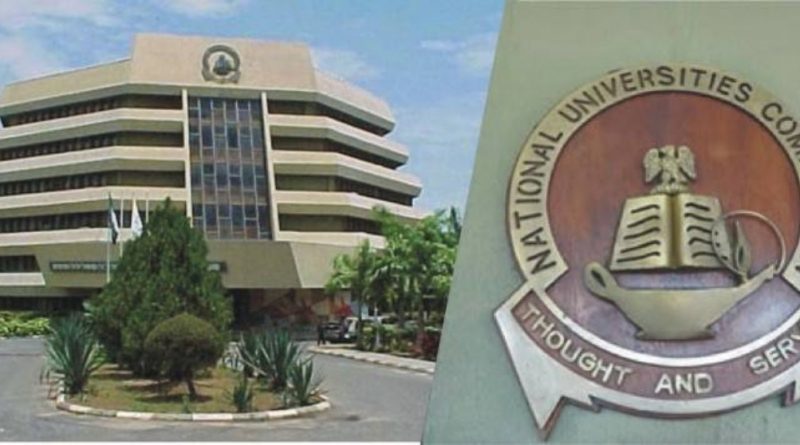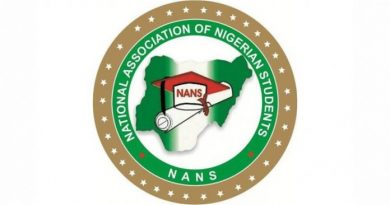Cancellation of academic session by universities and matters arising
Schools were shut nationwide in March 2020 to contain the spread of the COVID-19 pandemic. The closure coincided with a strike action by ASUU, whose members went on strike in protest against the non-implementation of the memorandum of understanding signed with the government for the revitalisation of the system.
Although the government lifted the national lockdown last August, public universities remained shut until late December when the Academic Staff Union of Universities (ASUU) suspended its industrial action. By then, the institutions had lost 10 months.
Many higher institutions were in their first semester before the lockdown; hence the closure not only interrupted teaching and learning, it also coincided with a key assessment period as tests and exams in some of the institutions were postponed.
READ ALSO: Nigerian Universities In Dilemma Over Overlapping Academic Sessions
Unfortunately, public universities have lost at least two semesters, leaving thousands of undergraduates unable to complete their degrees a year behind schedule.
Already, some institutions like Bayero University, Kano (BUK), and the University of Ibadan (UI) have announced the cancellation of the 2019/2020 academic session.
Stakeholders noted that the 10-month closure occasioned by the ASUU strike has caused a major interruption in students’ learning, disruptions in academic programmes, cancellation of internal and international conferences, as well as the gap in teaching and learning.
Although it is not clear whether the University of Nigeria, Nsukka (UNN) would cancel the 2019/2020 academic calendar, the school is planning for its post-UTME examinations for freshmen and women.
A lecturer in the Department of Geography at UNN, Prof Greg Ogu, said there was no way any school can recover from the 10 monthly strike action, no matter how the management went about it.
Ogu noted that most of the structures on campus were left without use, while some were vandalised during the strike.
Besides, he stated that the suspension of maintenance works due to the strike action has led to the dilapidation of some of the university’s structures; facilities, and environment.
Prof Ogu said to put back those structures, facilities, and environment; UNN would spend huge sums of money. “Moreso, the image of Nigerian universities has waned before members of the society.
“This implies that some lecturers were impaired from developing in their areas of duty. Ultimately, society, especially, students were deprived of benefiting from the trainers. It would take most lecturers months to re-adapt to teaching mode. Many on-going pieces of research were abandoned or delayed; in fact, most of the on-going researches may no longer be relevant to emerging national and global issues. Students and lecturers are mentally weak; therefore, many would graduate with such certificates, without knowledge,” Prof Ogu added.
A social commentator, Ugonna Onah said there was no way universities would recover lost ground on account of the strike, stressing that the development was bad on the system.
Onah added that when some institutions switched to e-learning in the wake of the COVID-19 lockdown, the idea was disrupted because of the strike.
He said the best way for schools is to readjust their calendar in the interest of students and the system.
Speaking on implications of the strike on learning, Vice-Chancellor, Osun State Universtity, Osogbo, Prof. Labode Popoola wondered how university teachers would feel comfortable not working for almost one year without thinking of the effect of their actions on learning and the nation’s educational system.
Prof Popoola said: “How can you internationalise when some people would go on strike for nine months without qualms? What happens to students who are on fixed scholarships? Which serious overseas universities would feel comfortable collaborating with a university that takes delight in shutting its doors at will? I don’t know of anywhere on this planet where some people would feel comfortable staying away from work for nearly a year”.
Dr. Bisi Adigun, a lecturer at the College of Arts, Bowen University, Iwo, Osun State said there is no way any university can realistically claim to have fulfilled its full academic obligations when students were at home for over nine months.
He said: “This is unarguably the first time that public university students would be out of school for over nine months. It must be borne in mind that while 12 months make a calendar year, an academic session usually lasts seven months or thereabout in public universities. In other words, it is not one academic session that public university students have lost but nearly two academic sessions.
“The fact is that our educational system is already very weak and therefore cannot be compared to what obtains in other climes. So, one can only imagine how a bad situation has now been made worse when a student who ought to be completing his or her degree this September had to stay home for over nine months doing nothing,” Adigun stated.
He noted that long, unresolved academic strikes that keep public university students at home for eternity must stop if the government is truly desirous of revitalising the sector.
A former ASUU Chairman at Obafemi Awolowo University (OAU), Ile-Ife, Osun State, Prof. Omotoye Olorode, wondered why the government had to wait for nine months before agreeing to the demands of university teachers.
Olorode pointed out that the reprieve may be temporary as issues leading to the strike are yet to be fully resolved.
While stating that time and other valuable things were lost to the strike, Prof. Olorode blamed the ruling class for problems in the system.
“It is not just that time is lost, the unattended and unused facilities must have deteriorated. Money would be used to replace and rehabilitate them. It looks like the Nigerian public, including people who are supposed to know, people who went through the university system with taxpayers’ money and were in the university 25 years ago, are those taking decisions and behaving as if they had never been in the system.
“When the government allows teachers to just walk away from classrooms, it is no doubt compounding the crisis in the nation’s educational system. Why did the government need nine months to answer lecturers?” Olorode queried.
Human Resources expert, Nelson Oruh, wondered if the decision to cancel the academic session had been put through a constructive analysis.
Oruh noted that even if the decision is justifiable, it does not negate the fact that the implications might be far worse than imagined as it would further lead to learning disruptions, loss of sponsors, lack of access to research facilities, and overdependence on digital learning in a system still grappling with the digital divide and poor infrastructure.
A lecturer at the College of Medicine, University of Benin (UNIBEN) and former chairman, Edo state branch of the Nigerian Medical Association (NMA), Prof. Afekhide Omoti said academic calendar for universities should not be tampered with due to strike actions or any eventuality.
According to him, every effort must be made to make up for a lost time, while maintaining the highest academic standards, as the nation cannot afford to produce half-baked graduates because of strikes.
Omoti said the appropriate thing for universities to do is to quickly finish the 2019/2020 session and adequately assess candidates before proceeding to a new academic session.
He said: “The new students may be delayed a little bit. By shortening the holidays, we should be able to catch up on lost time eventually. Although I don’t speak for any institution, the University of Benin has just released its academic calendar publicly, and the 2019/2020 session would be rounded up before the commencement of the 2020/2021 session.”
Another stakeholder, a Professor of Paediatrics and former Chief Medical Director (CMD), University of Benin Teaching Hospital (UBTH), Prof. Michael Ibadin said any institution can only cancel an academic session if the Senate of such institution approved it.
Ibadin said higher institutions of learning are at liberty to cancel the 2019/2020 session if they deem it necessary, otherwise, they must make up to cover for that particular session that had been lost.
Former Vice-Chancellor, Caleb University, Imota, Prof Ayodeji Olukoju, described the development as painful but unavoidable, following the conjoined calamities of the protracted trade dispute between university lecturers and government on one hand, and the lockdown occasioned by the COVID-19 pandemic.
The professor of History and Strategic Studies at the University of Lagos (UNILAG) said the 10 months closure has disrupted the academic calendar of all federal universities; delayed graduating and mobilisation of final year students for national service; the processing of staff annual salary increment, confirmation of appointments and promotions; as well as the inability of qualified staff to embark on sabbatical.
“In effect, none of these could have been averted in the current circumstances. A direct implication for both staff and students is general disorientation, especially as many were on the cusp of crucial career moves and activities, including completion of lectures, administering of continuous assessment, SIWES and industrial attachment/internship, professional examinations, graduation, research trips, overseas conferences (though this was ameliorated by virtual conferencing) and sabbatical.”
He added: “The effect is that many have lost a year of their lives, which may never be recovered in terms of seniority, number of years spent in school, completion of research on schedule, participation in international research network activities, and publication of findings. In spite of the ameliorating influence of online platforms for networking, several conferences had to be cancelled or significantly modified.
Cancellation of an academic session is unavoidable. We discussed in Senate and agreed that we could not possibly squeeze a full session, no matter how abridged (which will erode quality), into the remaining months of this year before the commencement of the next academic session.”
Olukoju however pointed out that cancellation of an academic session is not new, as a similar scenario played out in the early 1990s after a protracted strike.
“At best, we can apply lessons learned now to a future occurrence. As for trade disputes in tertiary institutions, the solution is to prevent strikes by submitting disputes to honest negotiation, respond rapidly and proactively to complaints and grievances, strike realistic agreements and adhere to terms and timelines, involve neutral arbiters in dispute resolution, increase and sustain funding of sector, and monitor progress to ensure quality and good governance, via periodic visitation and implementation of ensuing reports and recommendations,” Olukoju added.
Credit: The Guardian.ng
For Advert Placement, Sponsorship, support, Article submission, suggestion, etc, Contact us: info@theabusites.com, +2349015751816 (WhatsApp)








